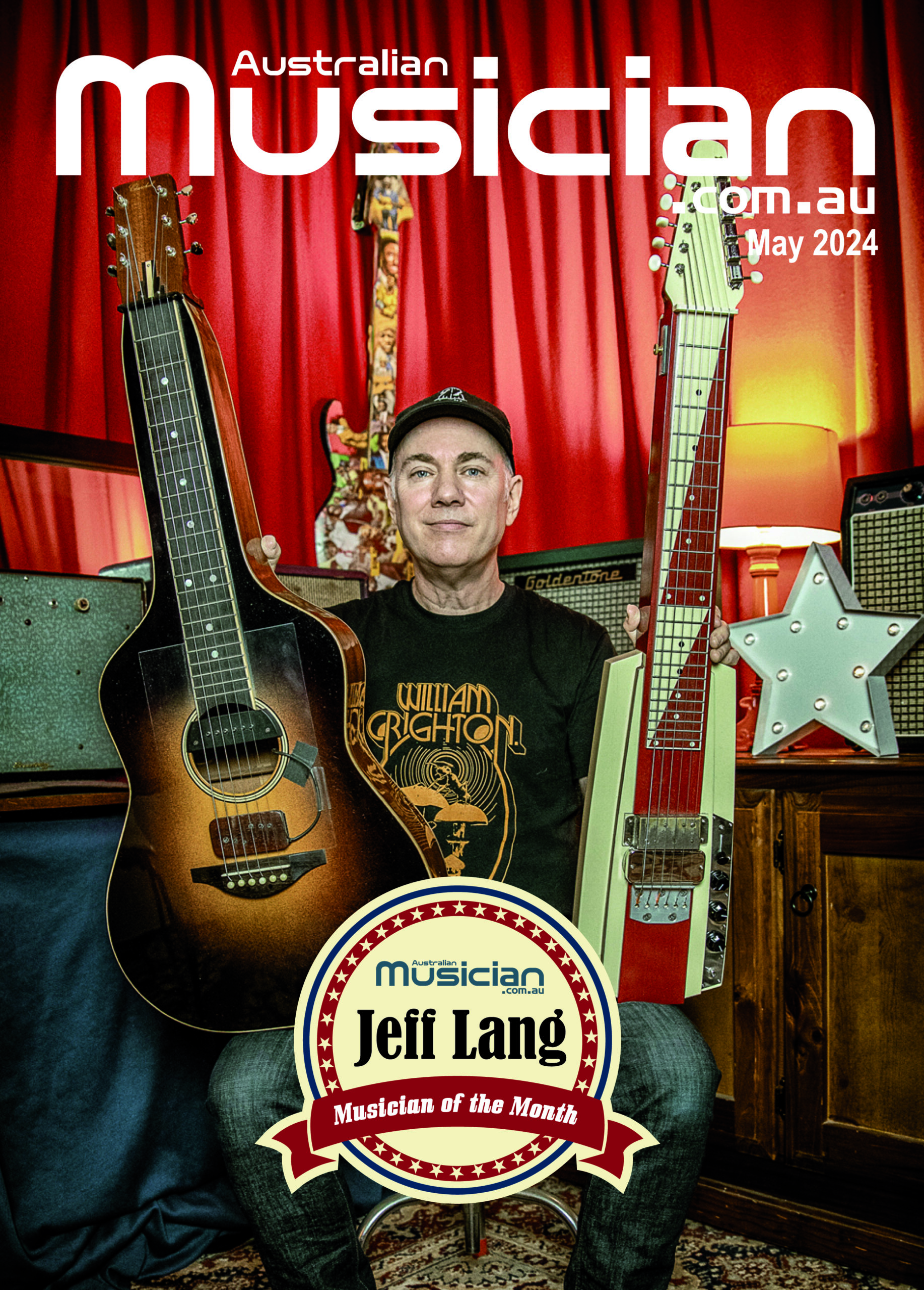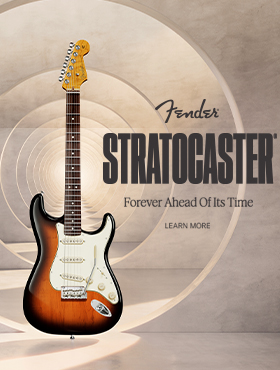Initially described as a bluegrass band, with their eclectic concoction of country, jazz, blues, classical and pop, delivered consistently over a 9 year period, New York’s Punch Brothers have become so much more. The band’s new album The Phosphorescent Blues, presents a virtuoso performance featuring intricate, complex, and beautifully played songs, stretching the boundaries of musicianship. With Beach Boy style vocal harmonies behind a symphony of fretted instruments, the Punch Brothers’ spirit of musical adventure redefines what bluegrass music is. Thematically, the album challenges the technological age we all surrender to and questions our values, priorities and the impersonal way we communicate with each other. Australian Musician’s Greg Phillips spoke with Punch Brothers guitarist Chris Eldridge and discussed the making of The Phosphorescent Blues.
GP: Is it hard to let go of an album and say it’s done?
CE: No, for me it is not. I feel that I get to a point where it is time to let it out. You have to accept that there are things about it that won’t be perfect. That is a good thing and should be celebrated, nobody is perfect. The thing is, T Bone Burnett, the producer often said during the production of the record that perfection is a second rate idea. Better is the enemy of good! At a certain point it is a beautiful thing to let it go.
The album begins with a 10:22 minute epic, ‘Familiarity’. Was there much discussion about the pros and cons of beginning the album with that?
There was. All along we thought we would start the record with the track My oh My, which wound up being the 6 or 7th track. We played around with the sequence for a couple of weeks trying to figure out how to best say our piece in the context of an album. There were songs that we recorded which didn’t end up being used on the album. Then when we finally settled on the songs we were going to use and Familiarity seemed like the right choice to start the album with. It was like, what are we afraid of to not put this crazy song first? That was the resistance. It was like, God are we really spitting in people’s faces by putting a ten minute song as the first track on the record. Eventually we just said, no this is what the record is about, let’s just get on with it.
Do you write specifically for impending albums with a theme in mind or is it a case of members offering up ideas that they’ve been playing around with?
I the past I would say that the albums have not been thematically united like this one was. The theme emerged just because it was on our minds. After we would finish a day of work, we would be hanging out with each other, having a drink and just talking about stuff. One thing that was everyone’s minds, was … what a weird era we live in! The way we are communicating with each other and being together is being changed and interrupted by this new technology. From those conversations, we thought let’s expand upon that. Let’s write about that. Chris Thile, writes all of the lyrics. We all have veto power but a lot of that stuff is his. But it was nice to have an organising principle for the record for the music and the whole thing.
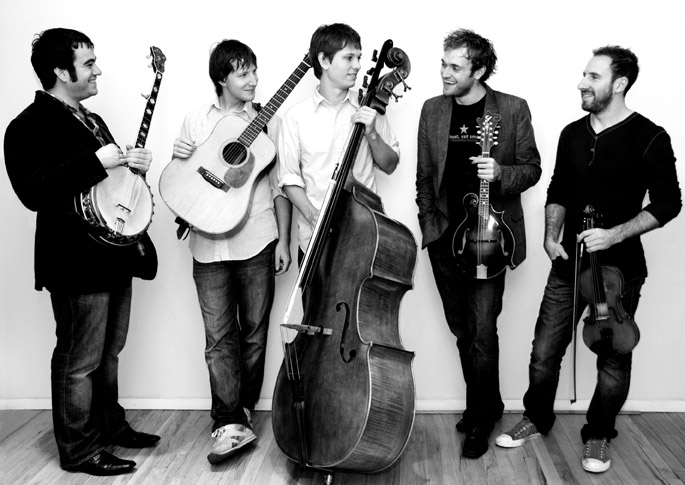 You have a couple of classical pieces on the album. Do you think the legendary classical composers would compose any differently if they lived in the internet age/social media age?
You have a couple of classical pieces on the album. Do you think the legendary classical composers would compose any differently if they lived in the internet age/social media age?
I am sure they would because they would be hearing different music. I think anybody who is a serious musician, is going to try and draw on the width and breadth of music which is available to them. They will try and figure out what is good and what they love and why they think it is good and why they love it. I think it was Duke Ellington who said that essentially, there are two kinds of music, good and bad. We as a band and as individuals all really believe that strongly. Any good musician must believe that. I am sure that whatever Bach would do today, God only knows. I wish I could hear that. I wish somebody could reanimate him with crazy DNA technology because I want to know what that sounds like.
Your recordings are so intricate with the interplay of the various fretted instruments. I gather the mixing process is a critical time for your albums, to get the levels just right. Would you say that you spend more time on mixing that a lot of other bands would?
Maybe so. This record took a while to mix. I wasn’t actually there. The mixing was done in LA and Gabe and Noam were there for a lot of it with Mike who engineered the album. There was a ton of back and forth. We were really trying to balance making everything have a certain warmth and vibe to it yet being able to detect all of the more intricate stuff that was going on. They would send us a mix and we would give feedback. Over a round of about five or six revisions, we would finally get it to where we wanted it.
Is your Martin D28 still your main guitar?
I’ve got that and I also have a 1937 D18 now which I love dearly. It is just a different animal, they do different things but both impeccable. It is kind of shocking that I get to have two instruments that are so nice. I’m a lucky man.
How do mic your guitar generally to get the best sound in the studio? Have you arrived at the optimum method?
No, I haven’t actually. Recording the guitar for this album, there were basically three recording set ups. There was a circle we were all sitting in, where you could wear headphones or not. You were close enough where if you didn’t want to wear headphones, you could still hear everybody and play in time. In that context I used a ribbon mic by AEA, I think an N22, which is at the lower end of AEA’s range. It’s kind of made for home recording but it sounds beautiful. Then we had isolation booths too where I had a Telefunken 251on the guitar, which is like the polar opposite to the N22, a rarified, crazy sensitive microphone but they both sounded beautiful in their own way. Just like different guitars are useful for different circumstances, the mics and how you mic something may change depending on what song you are playing. I also played a handful of T Bone’s guitars on this record. He had a couple of old Gibson Nick Lucas’ and an old Gibson Roy Smeck.
Do you like your strings played in for recording or like them fairly fresh?
Again, it totally depends. Generally speaking, I don’t like bright new strings. As far as brand goes, an all purpose Phosphor bronze string works for me. Different brands have different characteristics. It’s almost like applying EQ to a guitar. A DR string sounds one way and a John Pearse sounds another way and a D’Addario sounds a third way. It is essentially like they all have their own EQ, each of which may be appropriate in a certain circumstance. .. even on the same guitar.
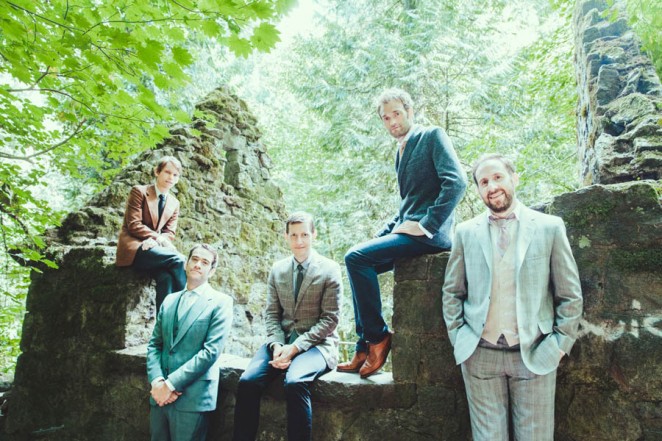 What did T Bone Burnett, the producer bring to the album?
What did T Bone Burnett, the producer bring to the album?
Oh boy, he brought an incredible sense of security in that we all knew that we had a great creative partner who was keeping the overview in mind. T Bone is sort of like a sixth member of the band in that he is right there and deeply, deeply cares about the music being good. Because he wasn’t playing it, he enjoys a different perspective that the rest of us literally are incapable of having because we were in the middle of it. So that have someone that you trust that much in that position, is a really liberating thing. Also T Bone, beyond that he is a master of making people feel good, allowing people to be their best selves when in the studio and the red light is running. I feel like when you record music, you are not just recording sounds, you are actually ideally recording something deeper than that. You are capturing a soul or emotion or spirit. That particular thing can be taken if you are feeling self conscious or self aware. T Bone is such a warm, funny smart generous person that he is great at making everybody feel their very best and also good at uniting people to get the best take. He is like a cat. He can see when you’re about to get it, when you’re close. At that moment he will come into the room and check in with everyone and have this warm, avuncular manner that pushes it over the edge.
It took you guys a while to introduce drums to your recordings. For most bands it’s just a given. Did you need to have that discussion again for this album?
The funny thing is, we were on day five of recording and we thought that there would be no drums on the album. In fact, there’s a coffee shop near the studio and me and Chris and Paul stopped there in the morning before we’d go inside. We were walking across the street and I remember Chris Thile saying, there’s one thing about Punch Brothers, we’ll never have drums! It was funny because we all felt that way but Thile was the one who just happened to say it. We were recording Magnet, a song on the record that we had played live without drums and it was good and effective. We got in there and began playing it and T Bone just said, why don’t we call Jay Bellerose up? Let’s have him come in and just see what happens. We all really loved and admired Jay for a long time he is a truly masterful musician. We had worked with him peripherally a couple of times. So we said, yeah that’s cool if it is Jay doing it just to add some percussion. He came in and the song really snapped into focus. So OK there’s that song. Then it was like the dam broke and T Bone was like if a song is calling out for drums, let’s use the drums. There is music we have definitely recorded on other albums that was calling out for drums and we didn’t use them. I am grateful that we broke the ice this time.
It’s important for you guys to hear each other on stage. Do you use in ear monitors?
In-ear monitors yes and Paul and Gabe use floor monitors for certain songs. Basically we use in-ears because as an acoustic ensemble, having really good sound is extremely important to us. We are so lucky that we have truly one of the great engineers in the world in Dave Sinko. He is like the sixth member, Jay Bellerose might have to be the seventh. For Sinko to be able to do his job, he needs to use microphones in conjunction with pickups. He needs pickups to be loud enough to be heard if we are playing a rock festival or something. He needs to have realistic representation of the acoustic instruments and the floor wedges just create problems.
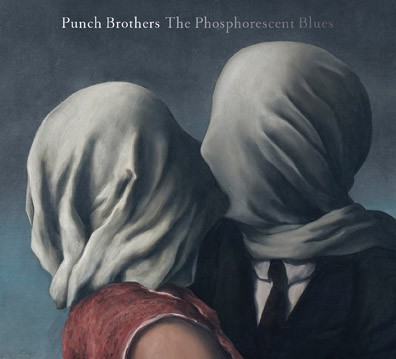 Do you purposely try to book into venues which have superior sound? I know you played the Melbourne Recital Centre here in Melbourne which has outstanding sound.
Do you purposely try to book into venues which have superior sound? I know you played the Melbourne Recital Centre here in Melbourne which has outstanding sound.
Yes, if we can we prefer that. Different venues have a different vibe. Playing a rock club can be a really fun thing just because of the way you interact with the audience and the way they interact with you, It is very different and often very invigorating but our music has a level of complexity that really benefits from being in beautiful sounding venues. At least really good sounding rooms. So that is important for us.
All the best with the album and hope to see you guys down here again soon.
We can not wait to come back. We were there in 2012 it was truly one of the very best trips we have ever taken as a band and we’re looking forward to getting back. I’m sure it won’t be too long.
http://www.punchbrothers.com/
The Phosphorescent Blues is out now

